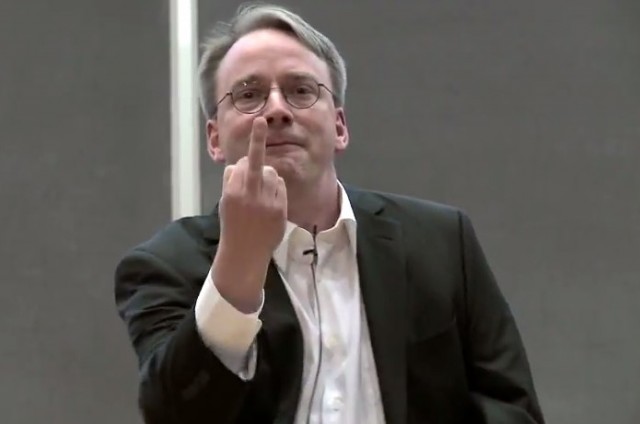
Linus Torvalds, the creator of the Linux kernel, isn’t shy about criticizing things that displease him. In recent months, he has taken aim at GitHub’s support for pull requests, the GNOME 3 user experience, and overzealous security mechanisms in software. That last case proved especially controversial, as Torvalds jokingly suggested that the developers responsible should kill themselves.
Now, computer graphics hardware manufacturer NVIDIA is his latest target. Torvalds publicly criticized the company last week during a question and answer session that followed a presentation. He called NVIDIA the “single worst company” that Linux developers have ever worked with, then pointed out that NVIDIA’s failure to work constructively with the Linux community is especially disappointing in light of the company’s large presence in the Android market.
After criticizing NVIDIA’s development practices, Torvalds concluded by addressing the company directly: “NVIDIA, FUCK YOU." Torvalds proceeded to raise his hand and present his middle finger. The talk was recorded, so the moment has been preserved for posterity (jump to the 49 minute mark for his remarks about NVIDIA).
Although it sometimes seems like AMD and NVIDIA are competing to see who can make the worst drivers for Linux, NVIDIA’s proprietary drivers are often the better of the two. AMD, however, has been more responsive to requests for collaboration from the Linux development community and has taken several steps to accommodate the development of open drivers.
NVIDIA hasn’t stepped up to officially support some features like its Optimus graphics switching technology on the Linux platform, and its drivers are also buggy and not particularly reliable. (Of course, NVIDIA’s track record with Windows drivers isn’t particularly good, either.)
The growing emphasis on hardware-accelerated rendering and ubiquitous compositing on the Linux desktop has made the graphics driver issue particularly painful in recent years. Linux developers have been working on independent open source driver implementations that are increasingly capable, though most are still no match for the proprietary drivers.
reader comments
162